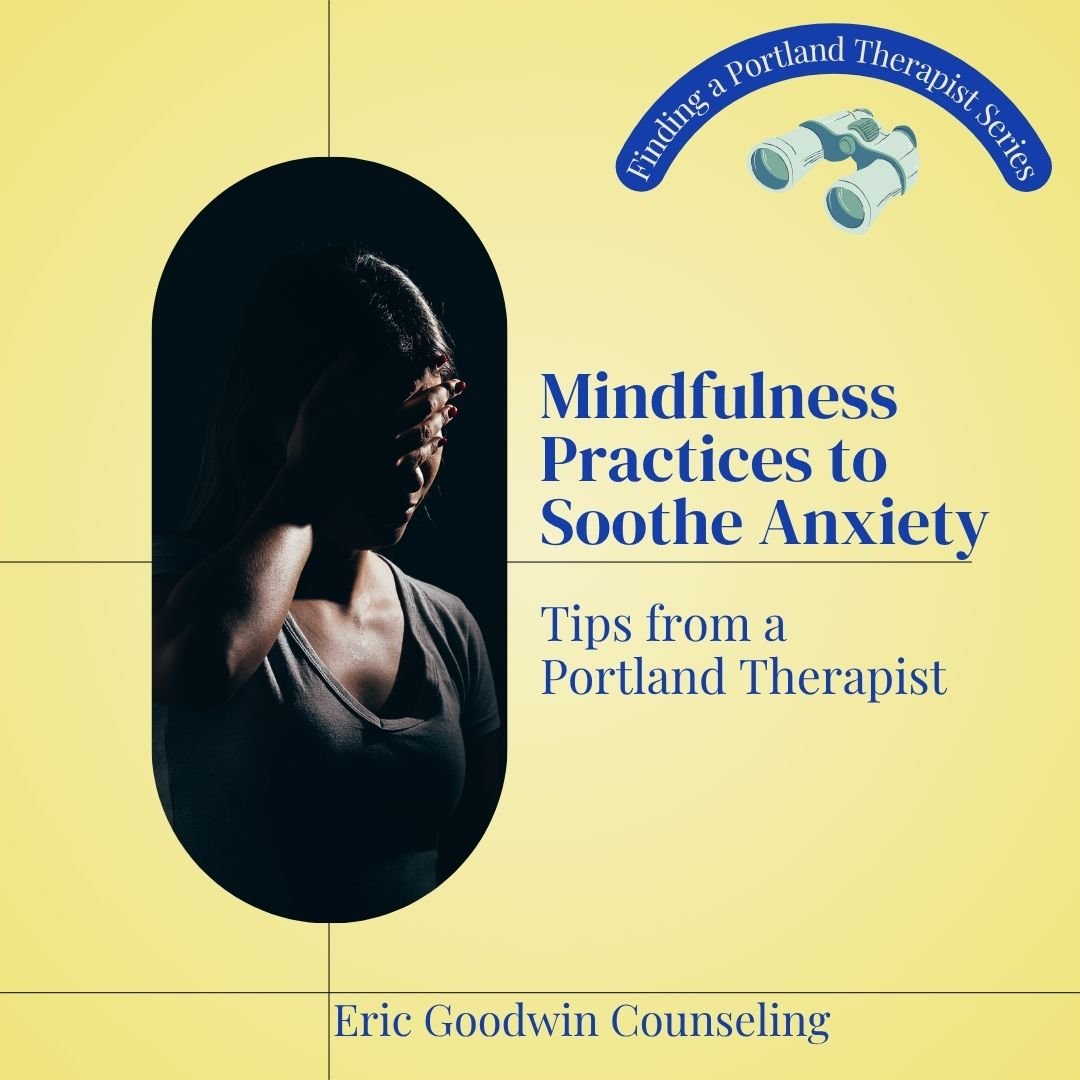Portland Therapist Tips: Mindfulness Practices to Soothe Anxiety
If you’ve found yourself searching for support with anxiety, working with a Portland therapist might be part of the relief you’ve been hoping for. Anxiety can simmer quietly in the background or hit you head-on, with racing thoughts, a tense body, a pounding heart, and the sense that even simple tasks feel impossible.
For many people in the LGBTQ+ community, anxiety can be amplified by navigating societal expectations, coping with discrimination, or struggling to feel at home in your own skin. Even in a city like Portland, known for its inclusiveness, these challenges often persist.
I’d like to share some good news: Anxiety doesn’t have to define your life. With mindfulness, you can begin to approach your anxiety in a way that feels grounding and supportive, creating space for calm amidst the chaos.
How Mindfulness Can Help Calm Anxiety
I’m aware that mindfulness has been used so frequently that its meaning and value may have become fuzzy in our collective consciousness. Mindfulness isn’t just a buzzword, it’s a helpful way to connect with the present moment, allowing you to gently step back from the spirals of worry and overwhelm. Instead of pushing anxiety away (or letting it consume you), mindfulness invites you to approach it with curiosity and compassion.
Think of mindfulness like pressing “pause” on a movie. When you take a moment to stop, you can notice details you might have missed before - like how anxiety feels in your body or the thoughts that come with it.
Reflect for a moment:
Have your thoughts ever raced faster than you could keep up?
How does anxiety feel in your body?
By paying attention to these experiences, you can begin to notice patterns. You may be wondering – “why in the world would I want to pay more attention to anxiety?” This is paying attention in a different way, slowing things down and giving you space. The insights you gain help you to find ways to respond with intention rather than reactivity.
Two Beginner-Friendly Mindfulness Practices to Try
Whether you’re navigating daily stress or seeking relief from more persistent anxiety, these simple mindfulness practices can give you a sense of what it is like to connect with the present moment and step out of the anxious loop.
1. Mindful Walking
Walking is something most of us do every day without thinking. Turning it into a mindfulness practice can transform a mundane activity into a calming ritual.
Here’s how to try mindful walking:
Step outside or choose a room at home where you can walk undisturbed for a few minutes.
Begin walking slowly, paying attention to the sensation of your feet touching the ground. Notice how your weight shifts from heel to toe with each step.
Bring your attention to your surroundings. What do you see? Hear? Feel? Smell? (Just notice)
When your thoughts wander (and they will), gently guide your focus back to walking. This is part of the process.
This practice is particularly grounding during times when you notice feelings of anxiety beginning to amplify. It’s a way to anchor yourself in your body and the present moment.
2. Mindful Eating
Mindful eating is a simple way to ground yourself in the present moment.
Choose a small piece of food, like a piece of fruit, a nut, or chocolate.
Take a moment to look at it closely. Notice its color, texture, and shape.
Hold it in your hand, feel its weight. Is it smooth, rough, or something in between?
Bring it to your nose and observe its scent. Is it sweet, earthy, or something else?
Slowly place it in your mouth, but don’t chew right away. Notice how it feels on your tongue.
Begin to chew slowly, paying attention to the flavors, textures, and sensations as you eat.
This exercise helps you step out of racing thoughts and into the sensory experience of the present moment. It’s a small but meaningful way to create calm during times of anxiety.
How Therapy Can Help You Approach Anxiety with Compassion
These exercises are just the start. Working with a Portland therapist can help you develop mindfulness practices aligned with your unique experiences, providing deeper support. A compassionate therapist helps you explore the roots of anxiety and build toward lasting calm.
For LGBTQ+ individuals, mindfulness can also help reconnect with a sense of safety and authenticity in a world that often challenges both. An affirming therapist understands the importance of your lived experiences.
Ready to Embrace a Calmer Way of Being? Let’s Work Together
Eric Goodwin, Licensed Professional Counselor in Portland, shares mindfulness-based therapy practices to help clients soothe anxiety and reconnect with a steadier sense of self—offering sessions across Oregon.
Anxiety doesn’t have to run the show. Approaching anxiety with mindfulness and self-compassion creates space for peace and clarity. You deserve a space to feel supported, understood, and empowered to navigate life’s challenges with confidence.
As a Portland therapist, I specialize in helping LGBTQ+ Affirming Therapy, Anxiety Counseling, and helping people to untangle shame and self-criticism. I also help people develop mindfulness and self-compassion. Together, we’ll explore what works for you, empowering you to navigate life’s challenges with greater ease.
If you’re searching for anxiety therapy in Portland or support from an LGBTQ therapist, I’m here to help. Call (971) 533-5590 or click here to schedule your free 15-minute consultation. Let’s take the first step toward calm together.

